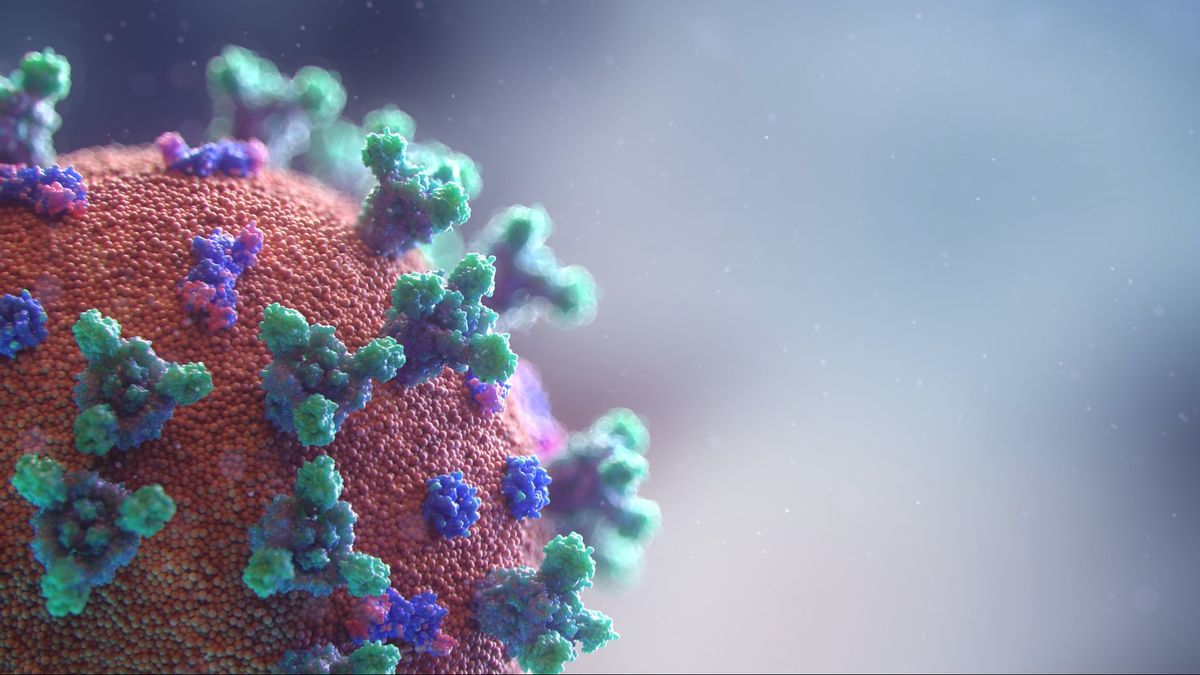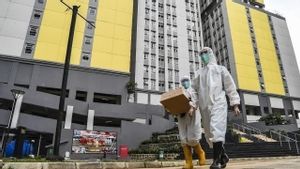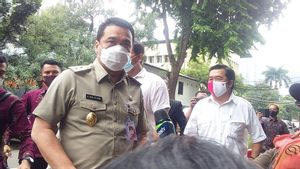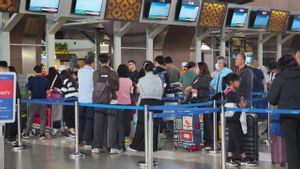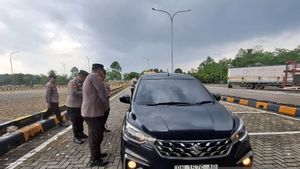JAKARTA - Approaching the 2021 Christmas holidays and the new year of 2022, the public was again surprised by the detection of the Omicron variant of COVID-19 in Indonesia.
The new variant of Omicron, reportedly has a development 70 times faster than the Delta variant. Omicron has been detected in 45 countries, and caused a third wave in several countries, including the UK.
The results of a study by the World Health Organization (WHO) reported that Omicron in the UK had a transmission rate three times higher than the Delta variant.
In addition, reinfection cases and people with a history of vaccination were found, so it was found that Omicron was able to evade the human immune system.
Then several interim report studies show that the potential of a COVID-19 vaccine is also suppressed by this variant, thereby allowing infection in people who have been vaccinated.
On Thursday, December 16, Minister of Health Budi Gunadi Sadikin confirmed a case of a new variant of COVID-19 Omicron was detected in a janitor at the Wisma Atlet Jakarta Emergency Hospital COVID-19, which came from a local transmission.
On that basis, the Wisma Atlet RSDC has locked down the location for seven days as an effort to prevent the spread of the new variant.
Meanwhile, the probable Omicron cases were also found in five international travelers.
Recently, as reported by Antara, Sunday, December 19, the Ministry of Health has detected two confirmed patients of the Omicron variant in the country, so that on Friday, December 17, there have been three people exposed through whole genome sequencing.
Even though the Government has just canceled the implementation of PPKM level 3 during the Christmas and New Year 2022 period, considering the situation of the COVID-19 pandemic in Indonesia is getting better.
So far, the Indonesian government has managed to keep the daily number of confirmed cases of COVID-19 stably below 400.
The spokesperson for the COVID-19 Task Force, Wiku Adisasmito, said that the first positive case of COVID-19 caused by infection with the Omicron variant must be an alarm or alert warning so that people must remain disciplined in implementing health protocols.
"The discovery of the first Omicron case is a warning that we must remain vigilant by consistently implementing health protocols, without worrying too much," said Wiku in a written statement, Friday (17/12).
Prevent Omicron
At present, encouraging public compliance with health protocols is the key to preventing the transmission of new variants of Omicron.
Due to the Christmas and New Year holidays, learning from last year's case, since mid-December, population mobility has increased quite dramatically
The COVID-19 Handling Task Force has also seen a decrease in public awareness of implementing 3M (washing hands, maintaining distance, wearing masks) in November-December.
"If compliance decreases, mobility increases, there is a threat of new variants that are more contagious. Then we have a potential risk of a spike in cases," said Head of Behavior Change for the COVID-19 Task Force Sonny Harry Harmadi in an online discussion, Thursday (16/12).
Sonny also hopes that the public will understand the rules made by the government to protect the public so that there will be no spike in cases. The increase in cases will only increase the burden on health facilities which will have an impact on increasing mortality rates.
In addition, a strategy to encourage the acceleration of COVID-19 vaccination is carried out to reduce the number of deaths.
The next strategy is to encourage testing and tracing among the community. Through the micro PPKM post at the village/kelurahan level, the interaction of early detection is believed to inhibit the formation of family clusters from travelers to their family members.
The government is seeking special tests to detect the Omicron variant of COVID-19 more quickly, in order to anticipate the spread through travelers, in order to prevent transmission at the community level.
As before, the COVID-19 Task Force always encourages people to celebrate Christmas and the new year with their families at home, and reduce unnecessary mobility.
However, travelers during Christmas and New Year are expected to be able to conduct an independent assessment of themselves. For example knowing health conditions, assessing mobility risks.
In addition, there are also considerations for choosing a tourist location where there is no possibility of a crowd build-up. Currently, many alternative tourism options are open.
The rules made as a condition of travel become the most important form of mobility restrictions to be followed. In addition, the ban on leave for ASN and BUMN employees is expected to drastically reduce the potential for a spike in mobility.
Other rules are the closure of the square during the new year and the requirement to limit the capacity of tourist attractions to a maximum of 75 percent, prohibition of new year celebrations, the implementation of odd-even at priority tourist attractions as an effort to limit mobility. There are also certain restrictions for cultural arts activities.
The government also encourages micro PPKM to be implemented in areas that tend to be densely populated and tourist destinations.
Meanwhile, the challenge that must be faced now to prevent the spread of the Omicron variant of COVID-19 is the compliance of citizens with health protocols in the region.
This is because the risk of COVID-19 transmission in densely populated areas tends to be high. In addition, in tourist attractions, people tend to ignore health protocols.
"We must respond in a new and appropriate way, that there is a risk of transmission that has not disappeared, plus the threat of Omicron transmission," he said.
SEE ALSO:
Child traveler
On the other hand, what must be anticipated is the increase in child travelers. Because the Christmas and New Year holidays are also accompanied by school holidays.
The government has given directions for accelerating COVID-19 vaccination in children, because it is known that the spread of the Omicron variant in South Africa attacks this group.
Especially for child travelers, parents are encouraged to familiarize their children with health protocols, so that when children travel they become more used to it.
Sonny emphasized what the public needs to understand now that long-distance travelers must have received a full dose of the COVID-19 vaccine.
Meanwhile, children under 12 years of age who have not received the complete vaccine, must be accompanied by a parent who has received the complete vaccine.
In the latest regulations, children can travel, but on condition that they bring PCR which is valid for 3×24 hours for air travel or 1×24 hour antigens for land or sea travel.
Preparatory steps for the Christmas and New Year holidays amid the spread of the new variant of Omicron should not be ignored for the sake of personal safety against the threat of the third wave of COVID-19.
This is primarily to reduce the risk of death due to excessive burden on health facilities in Indonesia.
The English, Chinese, Japanese, Arabic, and French versions are automatically generated by the AI. So there may still be inaccuracies in translating, please always see Indonesian as our main language. (system supported by DigitalSiber.id)
